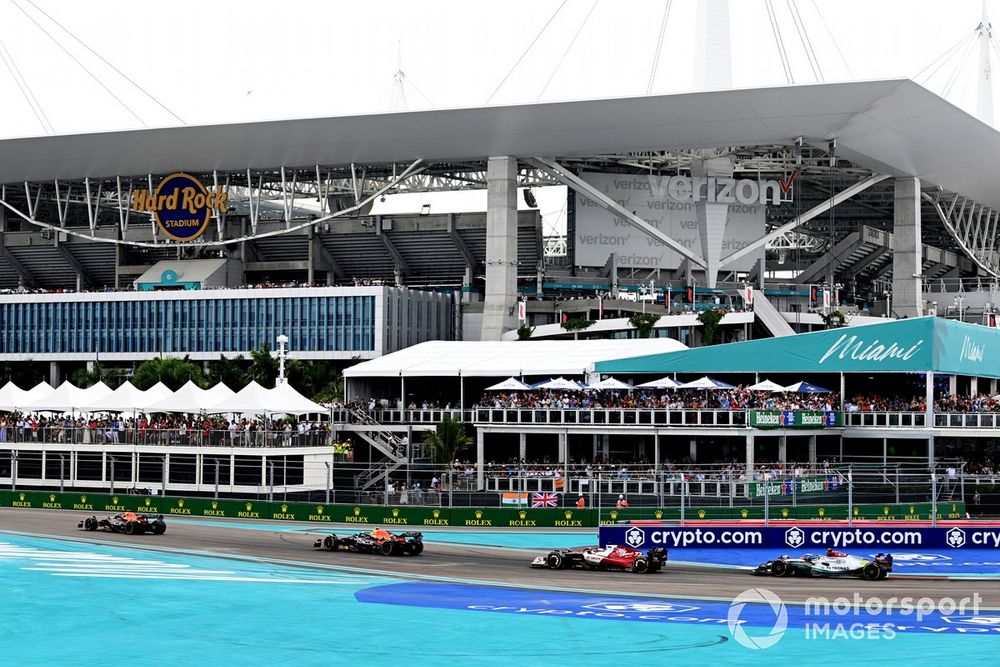Its sponsorship partnership with Red Bull, and a high-profile presence it has at this weekend’s Miami Grand Prix and the forthcoming Las Vegas event, are much more about shifting perceptions of what it is about now.
While it may be best known for the chain of more than 250 Hard Rock Cafes around the world, its push into the hotel and casino business have seen it evolve in to an entertainment and lifestyle brand – and it sees F1 has the perfect way to get that message across.
In fact, nothing helped it more in doing that than the Hard Rock Beach Club it set up at the Miami Grand Prix last year – and which is in returning in a bigger and better way for this weekend.
The iconic swimming pool and cabana set-up, bringing real sand to an F1 track as it hosted day-long parties, provided some of the more memorable images and sounds of last year’s Miami GP spectacle.
As Hard Rock International’s President of Entertainment, Keith Sheldon explained to Motorsport.com: “Hard Rock’s brand awareness is almost second to none. But brand perception is something that we’re looking to shift with consumers.
“It’s that we’re a global brand, and we are culturally relevant. We are just scratching the surface when it comes to our involvement with all the biggest and best cultural attractions.
“F1 certainly helps us break through to the consumer on an international level, more than really almost any other sport.”
Max Verstappen, Red Bull Racing RB18, Sergio Perez, Red Bull Racing RB18, Valtteri Bottas, Alfa Romeo C42, Lewis Hamilton, Mercedes W13
Photo by: Mark Sutton / Motorsport Images
Boom in the USA
Hard Rock was a founding partner of the Miami GP that takes place around the Hard Rock Stadium, and is one of the wealth of US sponsors that have become attracted to F1 as part of Liberty Media’s expansion effort in the country.
In the past, F1 struggled to make the breakthrough in the US, with events in Indianapolis, Phoenix and Dallas never lasting the duration.
But Sheldon believes that the current surge of interest is the result of the series having done something very different with the Netflix: Drive to Survive series.
“I think there was a core F1 fan base that existed in the United States to begin with,” he said.
“They watched the races on the weekends, they quietly celebrated a victory for their favourite team, but they didn’t really have an outlet to talk to anybody about it.
“I think Netflix brought Formula 1 to the mainstream….
Click Here to Read the Full Original Article at Autosport.com – Formula 1 – Stories…

